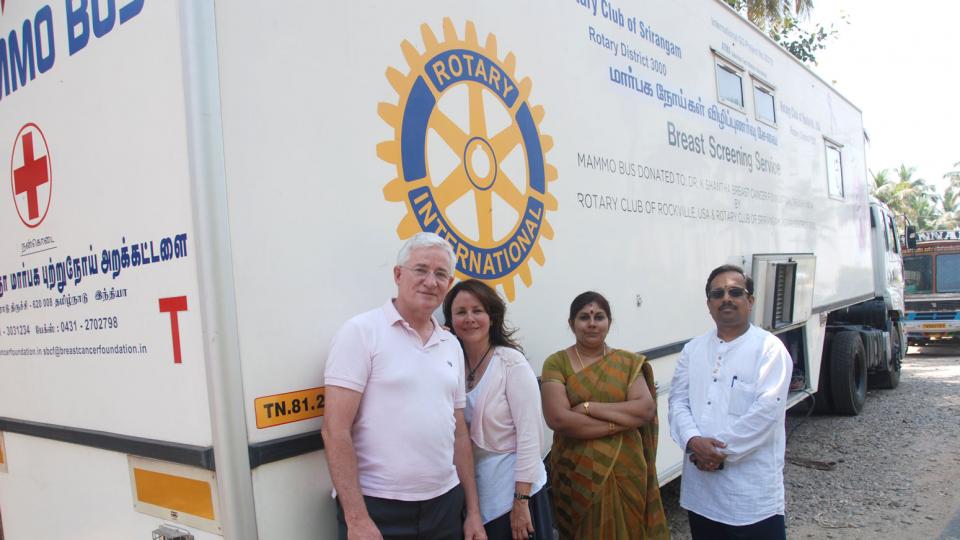MOVING DOCTOR’S OFFICE RESCUES WOMEN FROM BREAST CANCER

In Tamil Nadu, India, two doctors, both members of the Rotary Club of Srirangam, discovered an alarming trend in the remote city outskirts of Trichy, women dying of breast cancer.
Drs. K. Govindaraj and K.N. Srinivasan knew that much of the death and suffering could be avoided, and both were motivated by their personal experiences with the disease. Govindaraj watched his mother die of breast cancer a decade earlier, and helped found the Dr. K. Shantha Breast Cancer Foundation in her memory. Srinivasan, an oncologist, witnessed unprecedented growth in the number of younger patients coming to his clinic with advanced stages of the disease.
According to the National Cancer Registry of India, 20 to 40 women per 100,000 are suffering from breast cancer. And because many women lack the resources to travel to the city, or the$50 fee for proper screening , the doctors needed a unique approach. During a trip to South Korea, Govindaraj saw a large van outfitted with X-ray equipment parked outside a mall, and thought a moving doctor’s office and lab -- or “mammobus” -- could overcome the challenges they faced.
Through a Rotary global grant, the men were able to buy and outfit their own bus. Since April 2012 the Shantha Foundation’s mammobus, supported by local Rotarians and the Rotary Club of Rockville, Maryland, USA, has administered 2,500 free breast cancer screenings. Early stage cancer has been detected and treated in six women, and thousands have been taught how to conduct regular self-exams, an important means of early detection.
“Women have started feeling that they have easy access to health without compromising their day-to-day work and earnings,” Srinivasan says. “Women come out to our health workers with their health-related problems and discuss freely about various aspects of health and diseases, not just about breast cancer.’’
The mammobus cost $34,000 and is equipped with a mammography machine, an ultrasonogram, and materials that teach the method and importance of self-exams. The Shantha Foundation maintains the vehicle and reaches out to nongovernmental organizations, women’s groups, and employers to arrange visits. The bus stops anywhere a large group of women congregate, with priority given to rural areas. The Srirangam club also helps line up visits and widely promotes the bus through various media.
